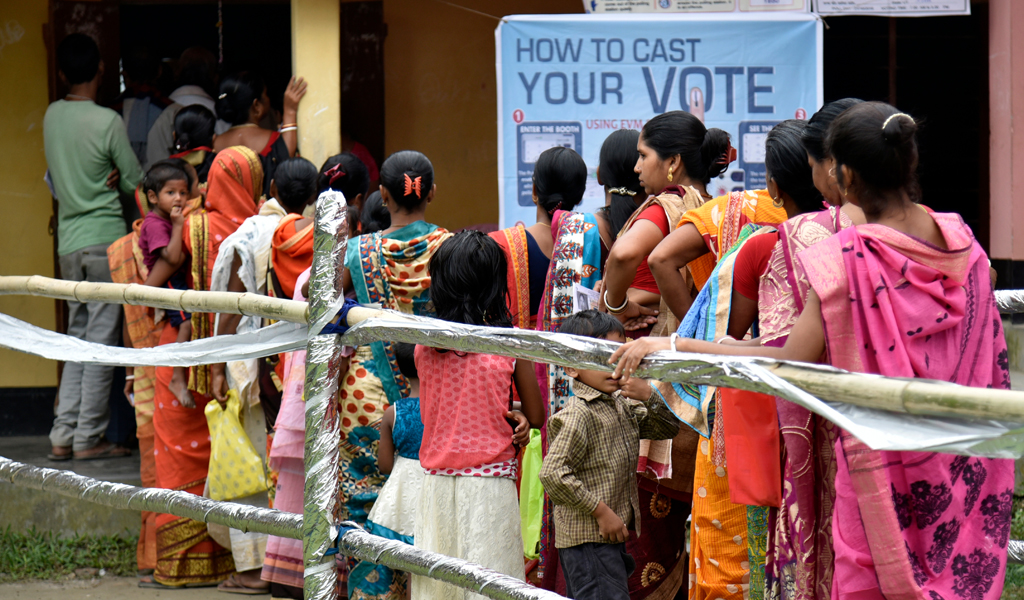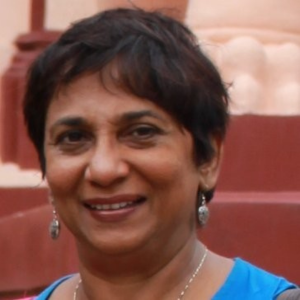2024 is a unique year for democracy as billions of people will go to the polls in over 50 countries across the world. Elections are due to be held in countries including Pakistan, India, Taiwan, South Africa, Mozambique, Rwanda, Mexico, the United States, and the UK. The election in India alone could see as many as one billion people have their say at the ballot box.

However, not all elections held present the best example of functioning democracy. Elections will also be held in Iran and Russia, where the most prominent opposition leader to President Putin is imprisoned.
Bangladesh was one of the first countries to hold elections in 2024. The vote was held on 7 January, where the ruling Awami League party won a landslide majority as expected due to the main opposition parties boycotted the election.
A test for democracy
Prior to election day in Bangladesh, IDS Research Fellow, Dr Sohela Nazneen spoke on BBC Radio 5 Live commenting that: “The election is a test case for democracy as none of the major opposition parties are participating. It’s mainly the ruling Awami party and independent candidates standing.
Continuing, Dr Nazneen said that it was a “disappointing turn given Bangladesh’s transition to democracy in 1991 and fiercely contested elections in 1991 1996 and also in 2001 and 2008. The US has tried to mediate and to get the parties to talk each other, which failed.”
The next elections in South Asia this year are due in Pakistan – possibly in February – and India’s general election is due before the end of June, where Narendra Modi, who has been Prime Minister since 2014 will be running again.
Elections in Africa
Out of the many elections scheduled for 2024, 15 will be held in Africa. This includes South Africa, Rwanda, Mozambique, and Ghana at the end of the year, where a new President will be elected as the current President will be ineligible to stand again.
Given the huge and growing youth population in Africa, with 75 percent of the population across Africa predicted to be under the age of 35 by 2030, many look to young people as potential disrupters or influencers of political outcomes in their countries.
However, Marjoke Oosterom, IDS Research Fellow writing with Lovise Aalen, Research Professor at Chr. Michelsen Institute in The Conversation say that while the role of youth in popular protest – such as in Sudan in 2019 – has created high expectations about their role in countering autocratic governments and contributing to democracy, in autocratic contexts efforts to empower youth can easily be manipulated to serve the interests of the regime.
Digital disinformation
Many of the youth-led popular protest movements in Africa have mobilised online civic space, taking advantage of social media and high mobile phone ownership. The flip side to the benefits of digital technology, however, is the range of tactics used to supress online civic space and spread disinformation online.
Forthcoming research from the African Digital Rights Network, hosted at IDS, details how digital technology is used in politics to disseminate misogynist disinformation to attack female politicians, xenophobic disinformation designed to fan ethnic divisions among voters, and coordinated campaigns of disinformation by political parties to distort elections.
Commenting on the upcoming elections, Tony Roberts, Research Fellow at IDS and co-editor of the upcoming book Digital Disinformation in Africa, says:
“Disinformation is certain to be a feature of the vast majority of the elections scheduled to take place in 2024. Coordinated campaigns of election disinformation involve the deployment of lies to manipulate citizens beliefs and voting behaviour. They necessarily undermine the free and fair democratic process.
“South Africa experienced a coordinated campaign of disinformation prior to the 2019 elections in which bots were deployed by UK political marketing firm Bell Pottinger to deploy 186,000 pro-President Zuma messages.
“South African journalists and civil society actors will be closely watching, fact checking, and analysing all social media coverage in the run-up to the 2024 poll.”
Biden v Trump?
Elsewhere, eyes are on the United States, where the election in November is widely predicted to be a repeat of the 2020 contest between President Joe Biden and former President Donald Trump. In the UK, a general election could be called by the Prime Minister at any time between now and January 2025, with Prime Minister Rishi Sunak most recently saying that his ‘working assumption’ is that it will be in the second half of this year.
Given the opposition parties differing views on aid and development in both the UK and US, and the potential disruption to geopolitics if Donald Trump returned to office, those elections could have a significant impact on international cooperation for development, along with the progress of the UN Sustainable Development Goals and action towards climate and environmental justice.

